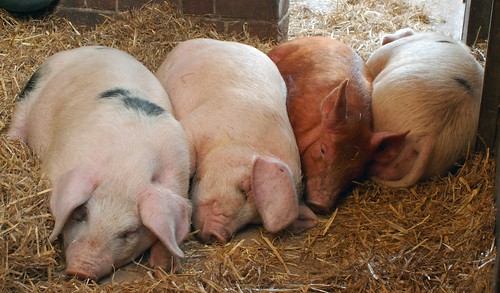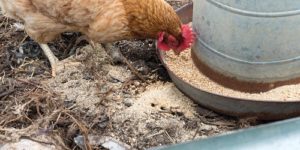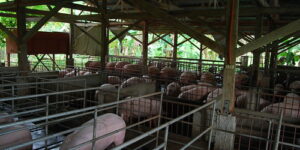Undoubtedly, the pervasive challenge linked with raising chickens and pigs is keeping the pungent odors emanating from the chicken or pig pens from getting worse or even totally eradicating them.
Most of the questions associated with controlling odors in poultry or pig farms are:
- Where are the odors coming from?
- What is the level of difficulty in managing the odors?
- How much will it cost me to control these odors?
This article will discuss the seven (7) practical steps that can be adopted to reduce odor in a piggery or pig farm.
1. Good farm location
The location of your livestock farm matters a lot. The production facilities also depend on the farm location. This is why you must take into account the distance of the piggery from residential places, the scale of production, and the waste disposal channels available. A pig farmer must also study the past prevailing winds for their direction, and regularity at different times of the year before establishing a farm. The farm terrain also influences the intensity of the odor because as winds subside, it flows downward via valleys. Therefore, choosing an appropriate site for raising your chickens or pigs is the cheapest means of controlling odors on the farm.
2. Proper handling of manure
When you inject manure (dung of chickens or pigs), you’ll reduce odor to about 52-76% in comparison to spreading the same manure. The injection of manure here is just like evacuating sewage from a sewage tank with the help of suction machines.
3. Manipulating the pigs’ diet
This may include reducing the levels of crude protein and bounding crystalline amino acids in the diet of the pigs. This is another cheap method and it can reduce odor by 20%.
4. Ventilation of the pit
The majority of the odors generated in a poultry or pig farm come from the dung pit. This adds more than half to the whole odor. When the dung pit is ventilated, volatilization is increased, and that provides limited advantages to the air quality inside.
5. Use of Biofilters
You can reduce odors and ammonia up to 65-80% by drawing exhaust air through a biofilter bed. A biofilter is an odor-curbing technology that is very effective, but its moisture content must be managed appropriately. You must ensure that the biofilter design is very compatible with your farm ventilation system.
6. Plant trees and shrubs
This is the point where planting trees, shrubs and other vegetative plants is very important. So if you want to reduce odor in a pig or poultry farm, then plant trees and shrubs around the farm. This won’t cost you much; just plant them.
7. Good General Management
If you manage your farm in terms of waste management, sewage disposal, and proper cleaning of the chicken or pig’s pens, then you will be faced with little or no odor-related problems.









Dear Akin,
Kindly direct me to where I can buy Livestocks mineral Premixes
Kindly visit any Animal Care Store to get them. You can try Livestock Feed retailers.